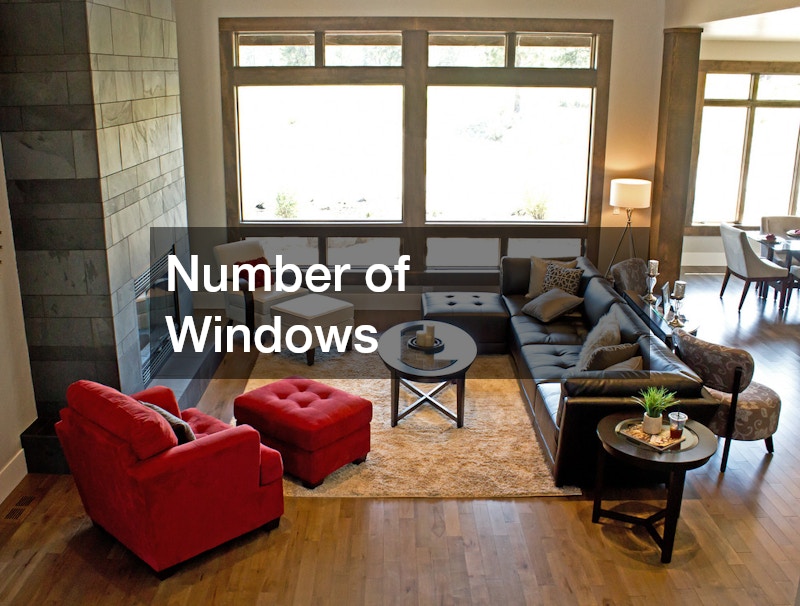Building your dream house is an exciting yet complex journey that requires careful planning and informed decision-making. From choosing the perfect layout to ensuring energy efficiency, every aspect of your home must be meticulously considered. The right number of windows, quality materials, and potential for future expansion all play a crucial role in shaping a comfortable and functional living space. Furthermore, financial planning is essential to ensure the construction process stays within budget while maintaining high-quality standards.
Beyond the structure of the house, the surrounding environment significantly influences your quality of life. Nearby schools, outdoor amenities, and landscaping all contribute to the long-term satisfaction of your investment. Additionally, ensuring proper ventilation and insulation can enhance the home’s energy efficiency and overall comfort.
This article explores the key factors you should consider when constructing your dream home. From practical aspects like house size and financing to aesthetic and functional elements such as outdoor amenities and ventilation, we will provide valuable insights to help you make informed choices. Whether you’re working with local contractors or choosing high-quality materials, each decision you make will impact your home’s value and livability for years to come.
Number of Windows

The number of windows in your home plays a critical role in both aesthetics and functionality. Natural light can transform the atmosphere of a space, making it feel more open, welcoming, and spacious. When designing your dream house, it’s essential to consider how many windows each room should have and their optimal placement. A window company can help guide you through the selection process, ensuring that you strike the perfect balance between natural illumination and energy efficiency.
Aside from aesthetics, windows also contribute to the home’s ventilation and insulation. Double-paned and energy-efficient windows can help regulate indoor temperatures, reducing energy costs throughout the year. Strategic window placement can also maximize cross-ventilation, making your home more comfortable during hot summers and reducing the need for excessive air conditioning.
If you’re working with a dream house construction team, they will collaborate with architects and window specialists to ensure that your home’s windows complement its design. Whether you want floor-to-ceiling windows for stunning views or smaller, energy-efficient windows for privacy and insulation, thoughtful planning will ensure that your home is both beautiful and functional.
Nearby Schools
When building a home, the proximity of high-quality schools is an important factor, especially for families with children or those planning for the future. The best schools in your area can provide excellent education and extracurricular opportunities, significantly enhancing your child’s development. Even if you don’t have school-aged children, living near reputable schools can increase your property’s value and appeal to potential buyers in the future.
Choosing a location with access to top-rated schools involves researching school rankings, academic programs, and extracurricular activities. Factors such as student-teacher ratios, standardized test scores, and college placement success rates should also be considered. Visiting schools and speaking with local educators can provide further insights into the quality of education available in the area.
Working with a dream house construction team means ensuring that your home’s location aligns with your family’s educational needs. Many homebuyers prioritize areas with strong school districts, and your home’s resale value will reflect this demand. When selecting land for your dream home, consider both current school rankings and future developments in the area to make an informed decision.
Budget and Financing
Before breaking ground on your dream home, establishing a realistic budget and securing financing are essential steps. A local accountant can help you assess your financial situation, calculate the costs associated with construction, and determine the best financing options available. By planning ahead, you can avoid unexpected expenses and ensure that your project remains on track.
The budget should include all expenses, including materials, labor, permits, and contingencies for unforeseen costs. It’s also crucial to consider ongoing expenses such as property taxes, homeowners’ insurance, and maintenance costs. Working with financial professionals will help you determine how much you can afford without overextending yourself.
Once your budget is established, securing financing through a mortgage or construction loan is the next step. Lenders will assess your credit score, income, and overall financial health before approving a loan. By working closely with your accountant and lender, you can create a sound financial plan that allows your dream house construction to progress smoothly.
House Size and Layout

The size and layout of your home should reflect your current and future needs. Whether you’re looking for a cozy cottage or a spacious estate, careful planning will ensure that your home suits your lifestyle. Consider the number of bedrooms and bathrooms required, as well as common spaces such as the kitchen, living room, and dining area.
New home construction offers the flexibility to customize layouts according to your preferences. Open-concept designs are popular for their airy feel and ease of movement, while traditional layouts offer distinct spaces for privacy and functionality. Storage solutions, including walk-in closets and built-in shelving, should also be factored into the design.
Working with a dream house construction team allows you to optimize space utilization while maintaining aesthetic appeal. Whether you prioritize large entertainment areas or intimate personal spaces, planning your home’s size and layout will ensure that it remains comfortable and adaptable for years to come.
Energy Efficiency
Energy efficiency is a critical consideration when building a new home. Investing in energy-efficient features can reduce long-term utility costs and minimize your home’s environmental impact. Attic insulation contractors can help you optimize insulation to maintain indoor temperatures and improve overall energy performance.
Insulated windows, energy-efficient appliances, and smart home technology can further enhance efficiency. Solar panels and geothermal heating systems are also excellent options for homeowners looking to reduce their carbon footprint. Properly sealing doors and windows can prevent drafts, ensuring that your heating and cooling systems operate efficiently.
By working with energy-conscious professionals during your dream house construction, you can incorporate sustainable materials and practices into your design. Prioritizing energy efficiency ensures a comfortable and cost-effective home for years to come.
Ventilation
Proper ventilation is essential for maintaining indoor air quality and preventing issues such as mold and mildew. Local HVAC services can install effective ventilation systems that ensure fresh air circulation throughout your home. A well-ventilated home contributes to a healthier living environment by reducing allergens and controlling humidity levels.
Future Expansion Possibilities
When designing your home, consider potential future expansions. Whether it’s adding an extra bedroom, expanding the kitchen, or constructing an outdoor living space, planning for future growth ensures your home remains functional as your needs change. Home additions can be seamlessly integrated into the initial design with careful planning.
Quality of Materials

The durability and aesthetic appeal of your home depend on the quality of the materials used. Hardwood flooring, premium countertops, and high-grade insulation contribute to the longevity and value of your home. Selecting high-quality materials ensures that your home remains beautiful and low-maintenance for years to come.
Outdoor Amenities
Outdoor features such as swimming pools, patios, and fire pits enhance the livability of your home. Swimming pool contractors can help design a pool that complements your outdoor space, adding both recreational and aesthetic value to your property.
Landscaping

A well-designed landscape adds curb appeal and increases property value. A professional landscaping contractor can design a garden that complements your home’s architecture, incorporating elements such as walkways, lighting, and native plants.
Designing and building your dream home is a multifaceted process that requires careful planning and collaboration with experienced professionals. From selecting the right number of windows to ensuring energy efficiency, every detail contributes to the comfort, functionality, and longevity of your home.
Financial planning is just as important as architectural decisions, as budgeting and financing impact the feasibility of your construction project. Additionally, factors such as school districts, outdoor amenities, and future expansion possibilities influence both your quality of life and your home’s resale value.
By partnering with reputable contractors, accountants, and architects, you can create a home that meets your current needs while accommodating future growth. Thoughtful choices in materials, ventilation, and layout will ensure that your dream home remains a valuable investment for generations to come.







